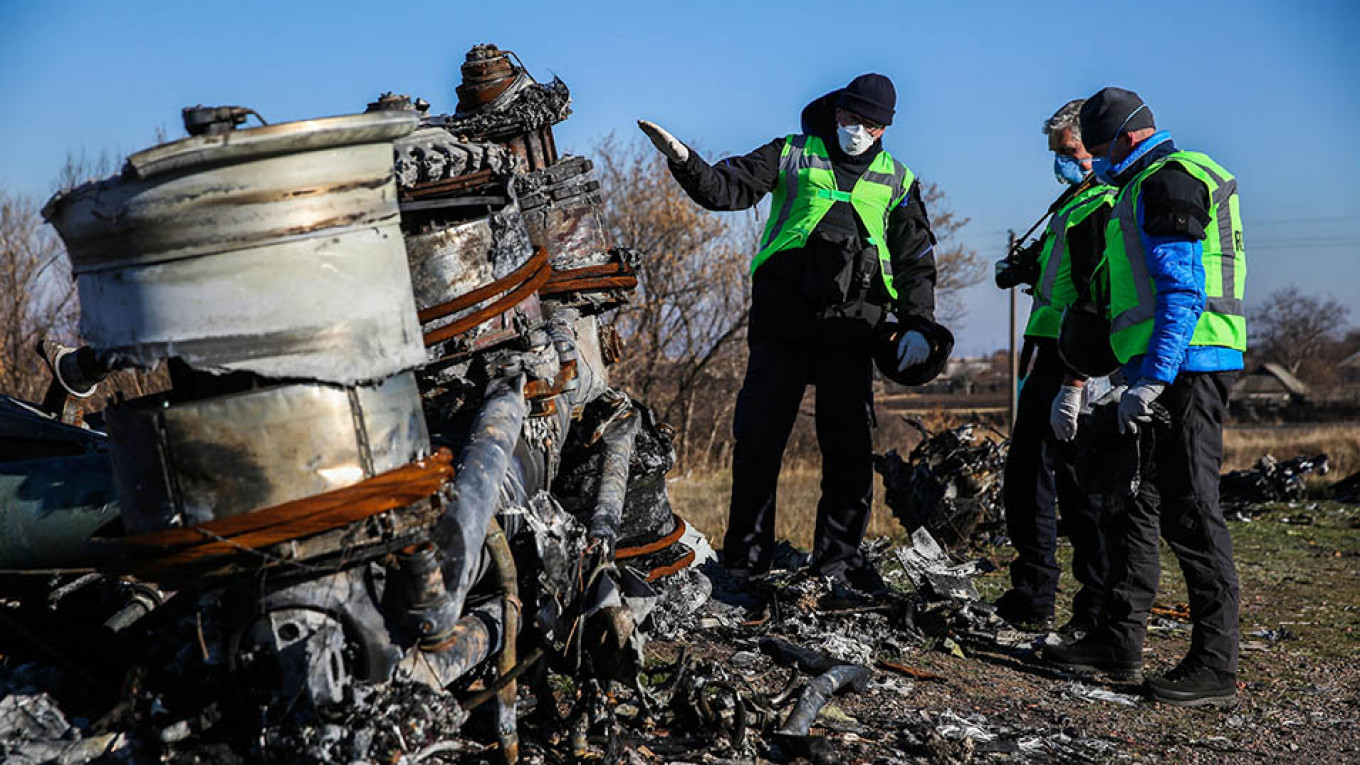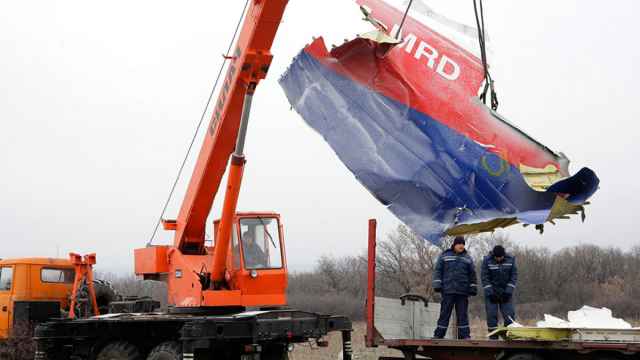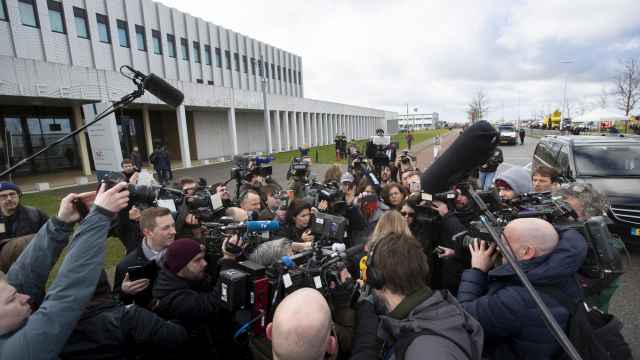The shooting down of flight MH17 over eastern Ukraine, which happened on this day exactly five years ago, was a terrible and completely unnecessary tragedy. All 298 people on board the Malaysian Boeing 777 perished because of a series of fatal blunders made by military officers and politicians which they had nothing to do with.
Thanks to the work of international investigators and online sleuths, it is pretty clear that the plane was shot down by a rocket fired from a BUK surface-to-air missile system located south of Snizhne, a separatist-controlled city in Ukraine’s Donetsk region. Thanks to the Dutch-led Joint Investigation Team and the Bellingcat research group we know that the BUK had been brought from Russia into Ukraine and was operated by Russian servicemen.
Last month Dutch investigators issued arrest warrants for three Russians and one Ukrainian citizen, all of them former commanders of the Russian-controlled Donetsk “People’s Republic,” for their alleged involvement.
While it is right to bring those responsible to justice, it is important to remember that it was massive military-political blundering that led to it.
It is hard to believe that the Kremlin and/or its military would order the shooting down of a civilian liner in order to step up the war. The incident occurred during an extremely tense period, when government troops were pressing into separatist-held areas after having taken Sloviansk and Kramatorsk two weeks earlier.
Also, shooting down a civilian airplane by mistake is nothing new for the region. In 1983, Korean Air Lines flight 007 was shot down by a Soviet interceptor plane, killing all 269 people on board. And in 2001, 78 people were killed when the Ukrainian armed forces accidentally shot down a Russian Tupolev 154 over the Black Sea during joint exercises with Russia.
This is not to say, of course, that the Russian government should not be held responsible. After all the war in Donbass would hardly have occurred if Moscow had not encouraged and supported the escalation of what was local grass-roots opposition to the Kiev Euromaidan revolution into all-out war.
And yet the MH17 effect on the conflict has been much smaller than originally thought. Yes, the crash galvanized the West into stepping up its sanctions against Russia. It also ensured massive international attention in countries like Australia and Malaysia, where many people usually have a hard time finding Ukraine on a map.
Five years later, however, these effects have largely fizzled out. Sanctions are still in place, but their implementation has not strangled the Russian economy. International attention to the conflict remains low, especially since the stalemate that set in after the Minsk agreement of 2015 remains.
More importantly, MH17 has done little to change public perceptions of the conflict. Russia’s denials have been shown to be self-contradicting, but Moscow’s efforts to point the finger at Ukraine and her Western allies have been very successful, especially at home.
A Levada poll in 2015 showed that just five percent of Russians believe that the separatists or Russia were to blame for the tragedy.
The people implicated by the Dutch investigators are unlikely to stand trial because Russia in principal does not extradite its nationals. However, the recent abduction and arrest of former “DNR” commander Vladimir Tsemakh by Ukrainian agents in Snizhne has made it possible that a key witness in the MH17 case will be held accountable in public.
However, this, too, is unlikely to move public opinion, given the circumstances of his arrest.
A Message from The Moscow Times:
Dear readers,
We are facing unprecedented challenges. Russia's Prosecutor General's Office has designated The Moscow Times as an "undesirable" organization, criminalizing our work and putting our staff at risk of prosecution. This follows our earlier unjust labeling as a "foreign agent."
These actions are direct attempts to silence independent journalism in Russia. The authorities claim our work "discredits the decisions of the Russian leadership." We see things differently: we strive to provide accurate, unbiased reporting on Russia.
We, the journalists of The Moscow Times, refuse to be silenced. But to continue our work, we need your help.
Your support, no matter how small, makes a world of difference. If you can, please support us monthly starting from just $2. It's quick to set up, and every contribution makes a significant impact.
By supporting The Moscow Times, you're defending open, independent journalism in the face of repression. Thank you for standing with us.
Remind me later.








